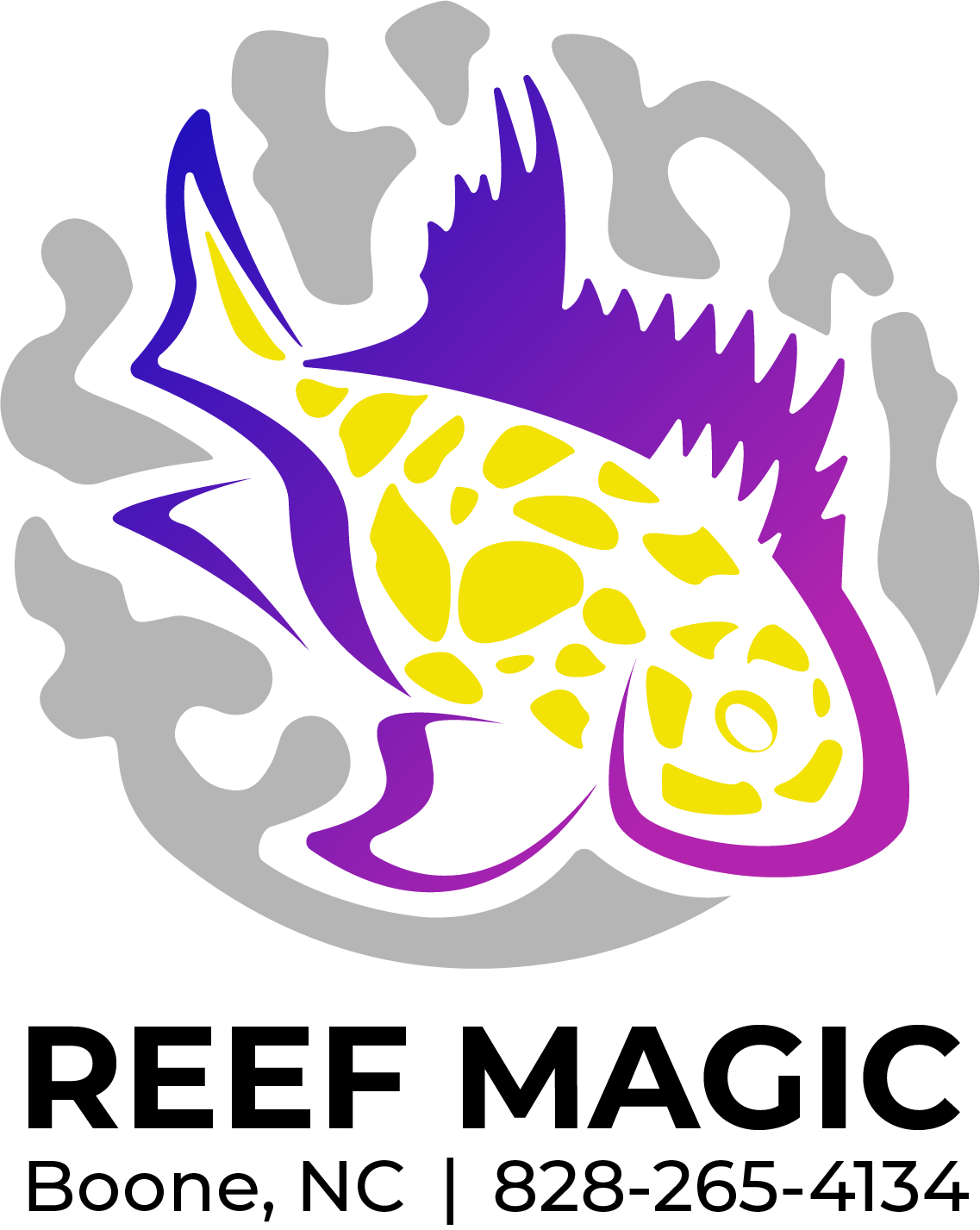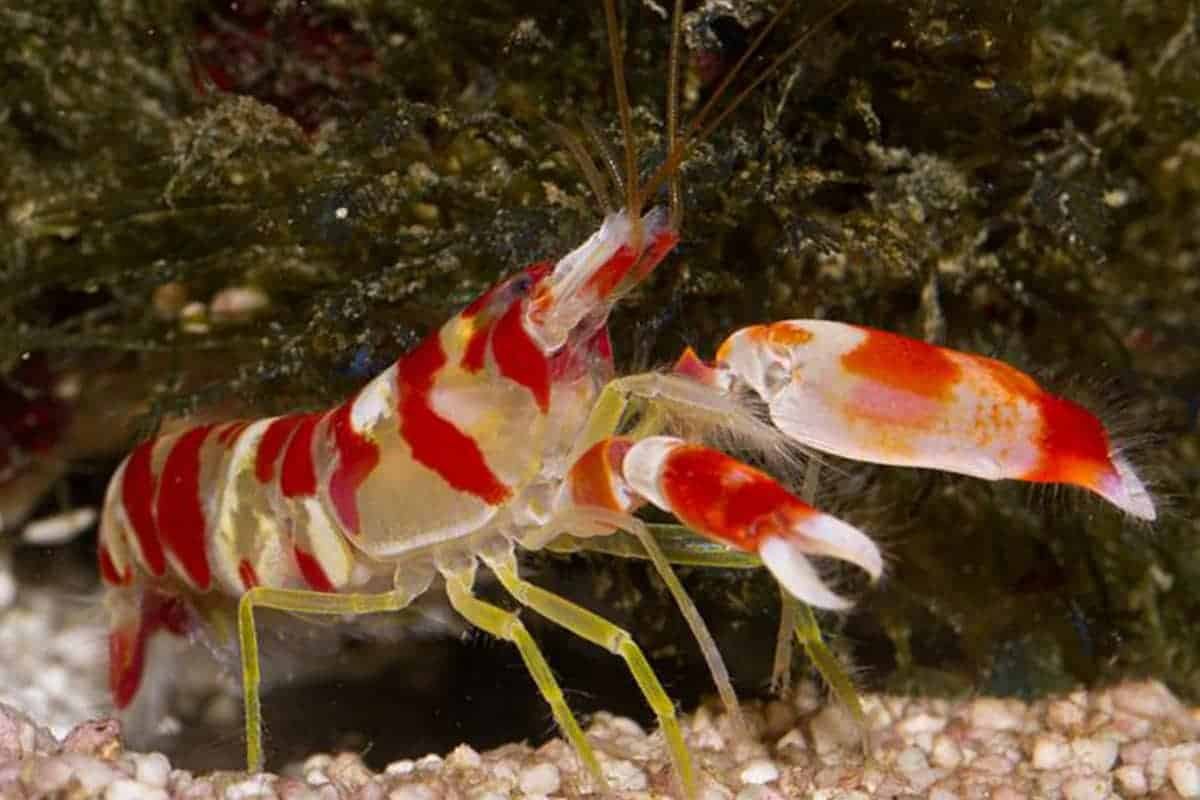 Image 1 of 2
Image 1 of 2

 Image 2 of 2
Image 2 of 2



Shrimp- Anemone
Anemone Shrimp, also known as Sexy Shrimp or Thor Shrimp (Thor amboinensis), are small, colorful, and fascinating additions to marine aquariums. They are known for their symbiotic relationships with various types of anemones and corals. Here are their care requirements:
Tank Requirements
Tank Size: Minimum of 10 gallons, but larger tanks are preferable for more stable water conditions and to provide space for their anemone hosts.
Substrate: A sandy substrate is ideal.
Rockwork: Provide live rock with plenty of hiding places and potential hosts for the shrimp.
Water Quality
Temperature: 75-82°F (24-28°C)
Salinity: 1.023-1.025 specific gravity
pH: 8.1-8.4
Ammonia/Nitrites: 0 ppm
Nitrates: < 20 ppm
Phosphates: < 0.03 ppm
Feeding
Omnivorous: Anemone shrimp are opportunistic feeders.
Food Types: They will eat small bits of fish, shrimp, mysis shrimp, brine shrimp, and commercial invertebrate pellets.
Supplements: Feed them with finely chopped seafood or algae-based foods.
Feeding Frequency: Feed small amounts daily to ensure they receive adequate nutrition.
Behavior and Compatibility
Symbiotic Relationship: Anemone shrimp often live in close association with anemones, such as Bubble Tip Anemones (Entacmaea quadricolor), as well as some types of soft corals and large polyp stony corals.
Reef Safe: They are generally considered reef safe and do not harm corals or anemones. They may clean up small food particles around their host.
Tank Mates: Compatible with a variety of peaceful reef-safe fish and invertebrates. Avoid housing with aggressive fish or large invertebrates that might harm them.
Care and Maintenance
Water Changes: Regular water changes (10-20% weekly or bi-weekly) to maintain water quality.
Observation: Regularly check for signs of stress or health issues, such as lethargy or lack of appetite.
Host Anemones: Ensure they have a healthy anemone or coral host, as they will often stay close to their host for protection and food.
Acclimation
Drip Acclimation: Acclimate slowly using the drip method to help them adjust to your tank’s water parameters, reducing stress and improving survival rates.
Additional Tips
Host Compatibility: Ensure that any anemones or corals used as hosts are compatible with the shrimp and in good health.
Avoid Copper: Do not use medications or treatments containing copper in the tank, as it is toxic to invertebrates.
Challenges
Host Availability: Make sure suitable hosts are available in the tank, as the shrimp rely on these for protection and food.
Fragility: Anemone shrimp can be delicate, especially during the acclimation period, so handle them with care.
By providing the Anemone Shrimp with a suitable environment, a varied diet, and healthy hosts, they can thrive and become a delightful and interesting addition to your marine aquarium.
Anemone Shrimp, also known as Sexy Shrimp or Thor Shrimp (Thor amboinensis), are small, colorful, and fascinating additions to marine aquariums. They are known for their symbiotic relationships with various types of anemones and corals. Here are their care requirements:
Tank Requirements
Tank Size: Minimum of 10 gallons, but larger tanks are preferable for more stable water conditions and to provide space for their anemone hosts.
Substrate: A sandy substrate is ideal.
Rockwork: Provide live rock with plenty of hiding places and potential hosts for the shrimp.
Water Quality
Temperature: 75-82°F (24-28°C)
Salinity: 1.023-1.025 specific gravity
pH: 8.1-8.4
Ammonia/Nitrites: 0 ppm
Nitrates: < 20 ppm
Phosphates: < 0.03 ppm
Feeding
Omnivorous: Anemone shrimp are opportunistic feeders.
Food Types: They will eat small bits of fish, shrimp, mysis shrimp, brine shrimp, and commercial invertebrate pellets.
Supplements: Feed them with finely chopped seafood or algae-based foods.
Feeding Frequency: Feed small amounts daily to ensure they receive adequate nutrition.
Behavior and Compatibility
Symbiotic Relationship: Anemone shrimp often live in close association with anemones, such as Bubble Tip Anemones (Entacmaea quadricolor), as well as some types of soft corals and large polyp stony corals.
Reef Safe: They are generally considered reef safe and do not harm corals or anemones. They may clean up small food particles around their host.
Tank Mates: Compatible with a variety of peaceful reef-safe fish and invertebrates. Avoid housing with aggressive fish or large invertebrates that might harm them.
Care and Maintenance
Water Changes: Regular water changes (10-20% weekly or bi-weekly) to maintain water quality.
Observation: Regularly check for signs of stress or health issues, such as lethargy or lack of appetite.
Host Anemones: Ensure they have a healthy anemone or coral host, as they will often stay close to their host for protection and food.
Acclimation
Drip Acclimation: Acclimate slowly using the drip method to help them adjust to your tank’s water parameters, reducing stress and improving survival rates.
Additional Tips
Host Compatibility: Ensure that any anemones or corals used as hosts are compatible with the shrimp and in good health.
Avoid Copper: Do not use medications or treatments containing copper in the tank, as it is toxic to invertebrates.
Challenges
Host Availability: Make sure suitable hosts are available in the tank, as the shrimp rely on these for protection and food.
Fragility: Anemone shrimp can be delicate, especially during the acclimation period, so handle them with care.
By providing the Anemone Shrimp with a suitable environment, a varied diet, and healthy hosts, they can thrive and become a delightful and interesting addition to your marine aquarium.






